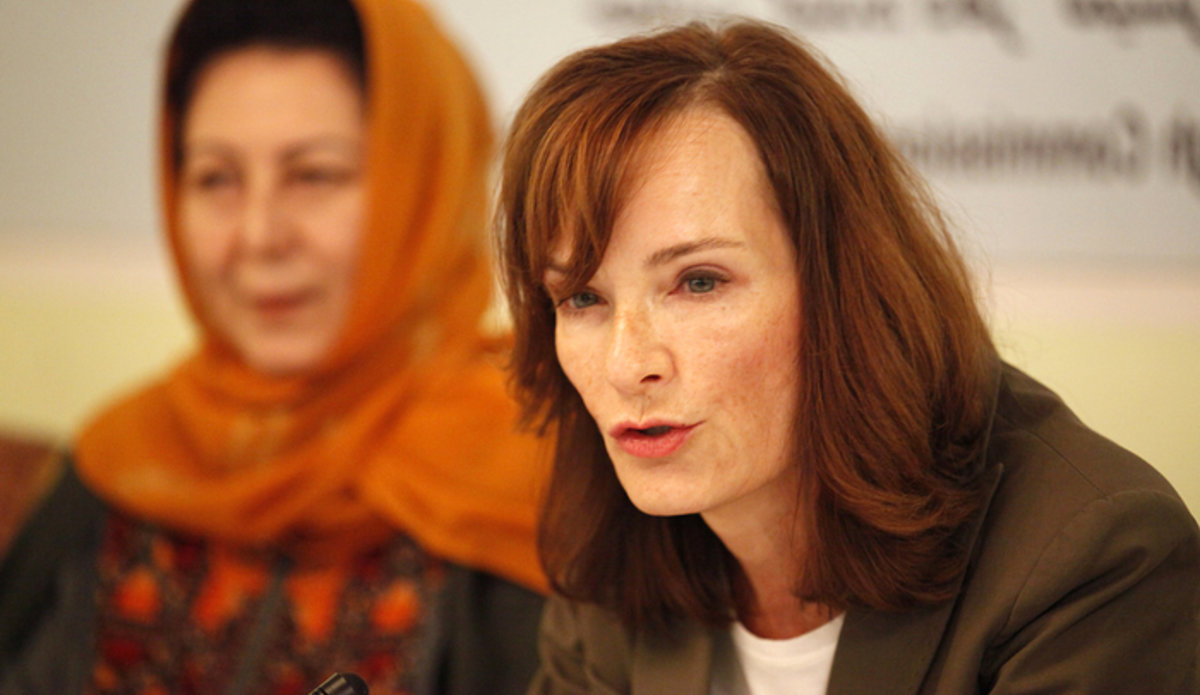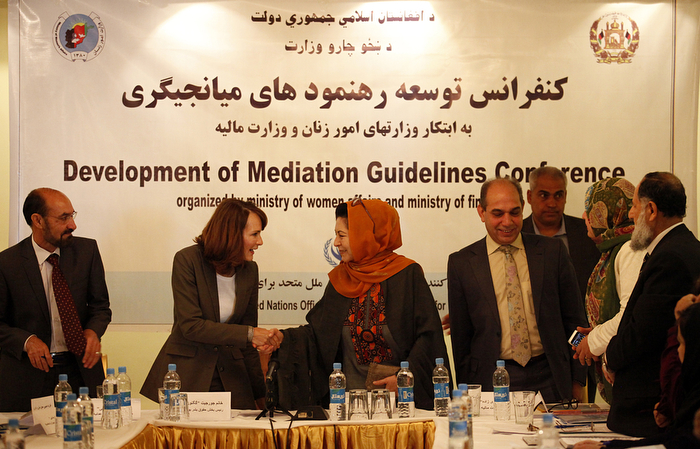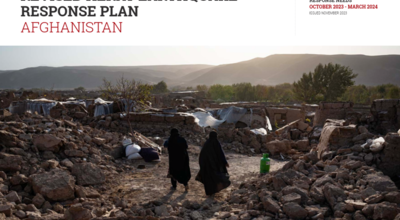At UN-backed gathering, experts aim to improve response to cases of violence against women
KABUL - Given the major role played by mediation in cases of violence against women in Afghanistan, a range of experts gathered at a United Nations-backed conference in the Afghan capital of Kabul today, to develop recommendations to improve judicial responses to such cases and mediation guidelines for where appropriate.
Hosted by the Afghanistan’s Ministry of Women’s Affairs (MoWA), and supported by the Ministry of Finance and the UN Assistance Mission in Afghanistan (UNAMA), the event – entitled ‘Development of Mediation Guidelines Conference’ – drew representatives from governmental bodies, civil society and academia.
Informal approaches have offered women victims of violence a more accessible, faster, less expensive and culturally acceptable solution to seek justice and remedies compared to opting for a criminal justice process often viewed as slow, corrupt and distant, according to experts. Traditional mediation approaches stem from existing practices and are considered to be acceptable within religious and cultural frameworks. However, mediation is typically conducted by various entities without any standards, guidelines or training, factors that raise concerns regarding women being unfairly treated in the process.
The Afghan Minister of Women’s Affairs, Hosn Bano Ghazanfar, was one of the speakers at the Kabul event. She outlined how existing mediation mechanisms have not been effective in criminal cases that involve physical violence, murder or sexual assault. These cases, she said, should be adjudicated in a manner more appropriate than informal mediation.
In particular, the Minister cited changes in Afghanistan’s approach to the Elimination of Violence Against Women (EVAW) law as steps in the right direction.
Enacted in 2009 through a Presidential decree, the EVAW law criminalizes acts of violence against women and harmful practices including child marriage, forced marriage, forced self-immolation, baad (giving away a woman or girl to settle a dispute) and 18 other acts of violence against women including rape and beating. It also specifies punishment for perpetrators.
In her remarks to the conference, the head of UNAMA’s Human Rights Unit, Georgette Gagnon, outlined findings from the world body’s annual reports on the EVAW law. The reports, she noted, identify shortfalls in the implementation of the law by police, attorneys and courts across the country.
Released in December last year, UNAMA’s ‘A Way to Go: An Update on Implementation of the Law on the Elimination of Violence against Women in Afghanistan’ found that Afghan authorities registered more cases of violence against women in 2013 – but prosecutions and convictions under the law remained low, with most cases settled by mediation.
Both Afghan and UN findings indicate that while many cases of violence against women have been addressed through traditional mediation, programmatic changes to judicial approaches to the EVAW law would be more effective in dealing with the issue.
“We expect that the outcome of this discussion today will strengthen the work of all of you, of all the institutions working so hard on eliminating violence against women,” said Ms. Gagnon. “Our most recent report found achievements in how the government was implementing the EVAW law in 22 provinces, but there are still problems; too many cases of violence against women are being mediated at all levels.”
Citing the use of mediation for cases that do not meet the specific EVAW law requirements, Ms. Gagnon said mediation should only be done when the women involved give consent.
“We hope and expect the process today will lead to some standards that will be implemented by all those people involved in violence-against-women cases,” she stressed.
However, she added, while mediation may be appropriate in some cases, the United Nations, together with the MoWA, found that mediation is still being used in some serious cases of violence against women, such as rape, murder and trafficking.
“This is not permitted under the EVAW law,” the UNAMA official said. “These very serious cases are to be prosecuted in the courts.”
Urging those present to establish common standards across judiciary mechanisms for effectively using mediation and applying the EVAW law, Ms. Gagnon said the United Nations stands ready to assist and support all efforts in assisting Afghan women who are suffering from violence.
 UN
UN










